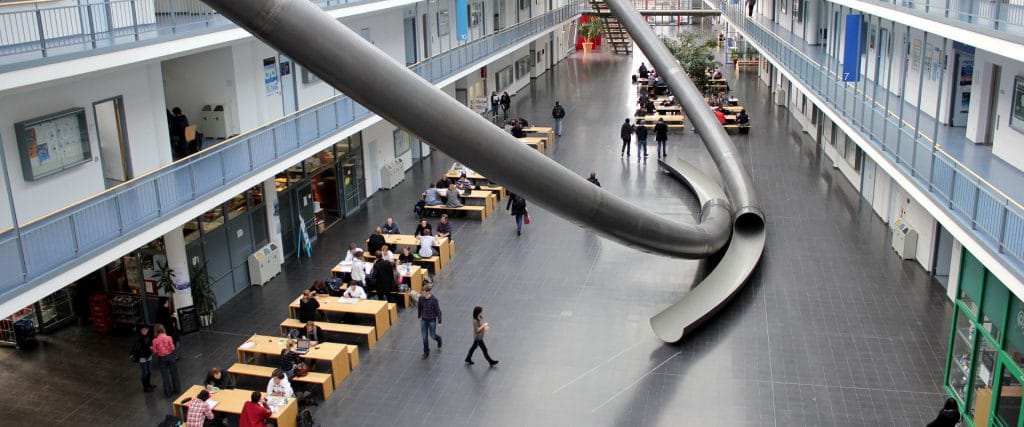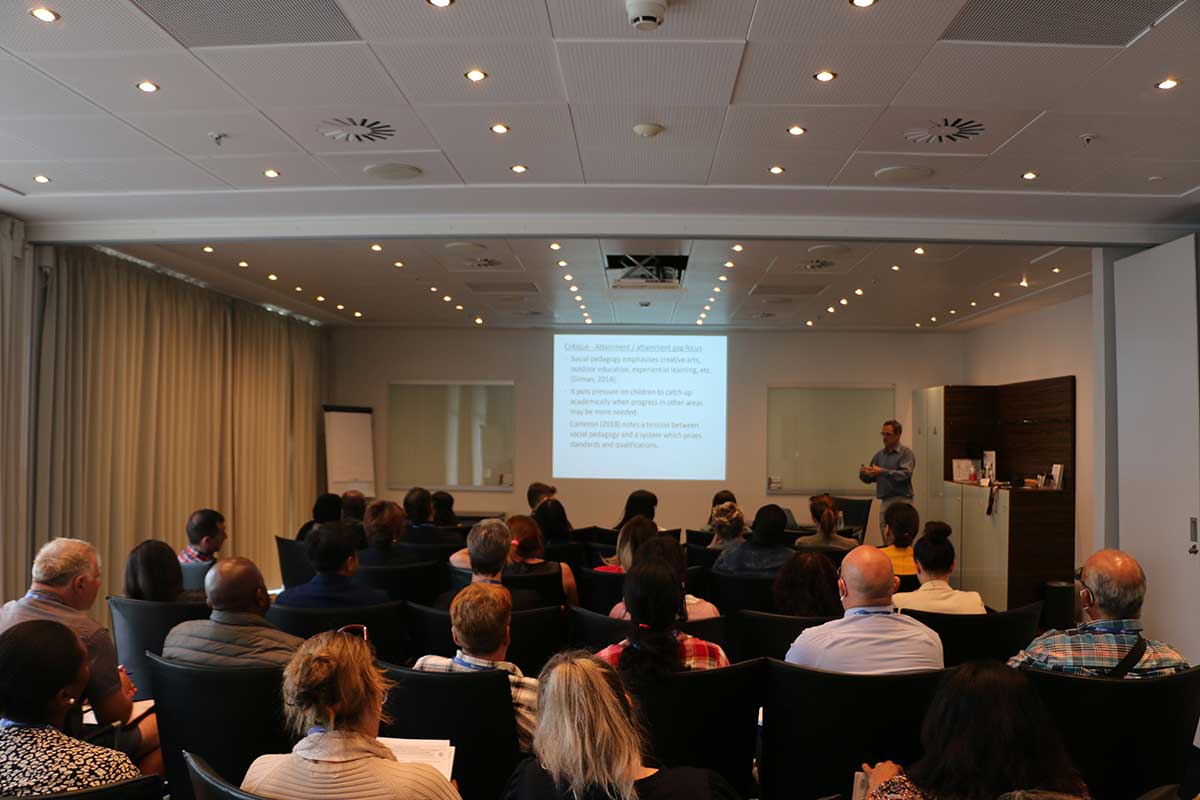Germany is a Western European country with a landscape of forests, rivers, mountain ranges and North Sea beaches. It has over 2 millennia of history. Berlin, its capital, is home to art and nightlife scenes, the Brandenburg Gate and many sites relating to WWII. Munich is known for its Oktoberfest and beer halls, including the 16th-century Hofbräuhaus. Frankfurt, with its skyscrapers, houses the European Central Bank. In this article we want to talk about best universities in Germany and Germany university rankings so read the entire article.
Best universities in Germany
- Technical University of Munich
Consistently featured as one of the highest-ranked universities in Germany in the QS World University Rankings®, Technical University of Munich (Technische Universität München), also known as TUM, was founded in 1868 and is a member of the TU9, an association of nine of Germany’s most prestigious technical universities. TUM has 14 academic departments and 40,124 students, of which around 24% are international. It calls itself The Entrepreneurial University and aims to foster a supportive environment for budding entrepreneurs. There are 172 degree programs available including a selection of English-taught courses.

2. Ludwig-Maximilians-Universität München
Ludwig-Maximilians-Universität München – the University in the heart of Munich – is recognized as one of Europe’s premier academic and research institutions. Since our founding in 1472, LMU has attracted inspired scholars and talented students from around the globe, keeping the University at the nexus of ideas that challenge and change our complex world.
Germany university rankings
As one of Europe’s leading research universities, LMU looks back on 500 years of tradition. Its excellence in teaching and research embraces a wide diversity of fields — from the humanities and cultural studies through law, economics and social sciences to medicine and natural sciences. An intense interdisciplinary approach fosters the innovation so critical to our global future.
Creative thinking, problem-solving and research are central to LMU’s academic programs. Its Medical Center is, next to the Charité in Berlin, the most prestigious and largest institution of this kind in Germany.

3. Ruprecht-Karls-Universität Heidelberg
Established in 1386, Heidelberg University – also known as Ruperto Carola – is Germany’s oldest university and one of Europe’s most research-intensive institutions. Its successes in the Excellence Initiative and its positions in internationally recognised rankings substantiate the leading role and excellent reputation of Heidelberg University in the academic, scientific and research landscape. In educating students and advancing outstanding young researchers, Ruperto Carola emphasises research-based teaching and structured doctoral training programmes in its graduate schools.
Germany university rankings
Heidelberg University is a comprehensive research university. Its broad subject spectrum in twelve faculties includes the humanities, law, the social and behavioural sciences, the life sciences, medicine and the natural sciences. With approximately 160 degree programmes, Heidelberg offers a preeminent array of subject combinations. The university actively participates in a worldwide network of teaching and research collaborations: 25 institutional partnerships at the overall university level and exchange arrangements with over 450 universities throughout the world underscore the strength of Ruperto Carola’s international ties. A multitude of research and teaching collaborations are also established at the faculty, institute and chair levels.
The university is especially committed to advancing exceptional individual disciplines, promoting dialogue beyond traditional disciplinary boundaries, and turning research findings to good use for society and the economy. In this endeavour, it also relies on strong partners outside the university.

4. KIT, Karlsruhe Institute of Technology
Karlsruhe Institute of Technology is a German university based in the city of Karlsruhe primarily involved in STEM areas and currently home to 25,892 students. Their main research areas include energy, mobility and information. It runs a Centre for Innovation and Entrepreneurship which provides free advice and resources to students and alumni seeking to start their own business.

5. Humboldt-Universität zu Berlin
Humboldt-Universität was founded in Berlin in 1810, and the foundation concept of Wilhelm von Humboldt gave it the title “Mother of all modern universities”. This concept envisaged a “Universitas litterarum” which would achieve a unity of teaching and research and provide students with an all-round humanist education. This concept spread throughout the world and gave rise to the foundation of many universities of the same type over the next century and a half. The concept of the academic and statesman Wilhelm von Humboldt was influenced, among others, by the reform ideas of the philosopher Johann Gottlieb Fichte, the first vice chancellor of the university, and by the theologian and philosopher Friedrich Schleiermacher. From the outset, the university in Berlin had the four classical faculties of Law, Medicine, Philosophy and Theology. Its first academic term began with 256 students and 52 teaching staff. Professors such as Georg Friedrich Wilhelm Hegel (Philosophy), Karl Friedrich von Savigny (Law), August Boeckh (Classical Philology), Christoph Wilhelm Hufeland (Medicine) and Albrecht Daniel Thaer (Agriculture), shaped the profile of the individual faculties in accordance with Humboldt’s concept.













0 Comments